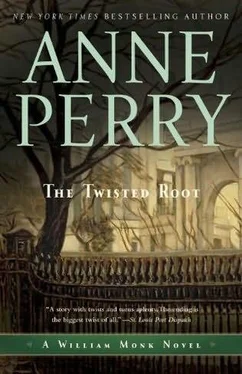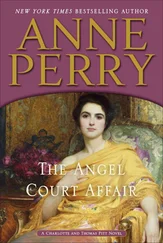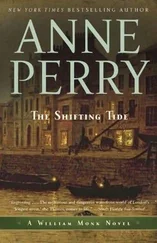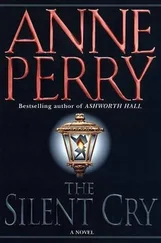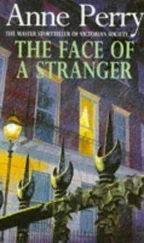Anne Perry - The Twisted Root
Здесь есть возможность читать онлайн «Anne Perry - The Twisted Root» весь текст электронной книги совершенно бесплатно (целиком полную версию без сокращений). В некоторых случаях можно слушать аудио, скачать через торрент в формате fb2 и присутствует краткое содержание. Жанр: Исторический детектив, на английском языке. Описание произведения, (предисловие) а так же отзывы посетителей доступны на портале библиотеки ЛибКат.
- Название:The Twisted Root
- Автор:
- Жанр:
- Год:неизвестен
- ISBN:нет данных
- Рейтинг книги:5 / 5. Голосов: 1
-
Избранное:Добавить в избранное
- Отзывы:
-
Ваша оценка:
- 100
- 1
- 2
- 3
- 4
- 5
The Twisted Root: краткое содержание, описание и аннотация
Предлагаем к чтению аннотацию, описание, краткое содержание или предисловие (зависит от того, что написал сам автор книги «The Twisted Root»). Если вы не нашли необходимую информацию о книге — напишите в комментариях, мы постараемся отыскать её.
The Twisted Root — читать онлайн бесплатно полную книгу (весь текст) целиком
Ниже представлен текст книги, разбитый по страницам. Система сохранения места последней прочитанной страницы, позволяет с удобством читать онлайн бесплатно книгу «The Twisted Root», без необходимости каждый раз заново искать на чём Вы остановились. Поставьте закладку, и сможете в любой момент перейти на страницу, на которой закончили чтение.
Интервал:
Закладка:
"I know that," Oliver agreed. "And I have racked my brain to think what it could be."
"Is it the same reason for each?"
"I don’t even know that."
Henry sat thoughtfully, elbows on the arms of his chair, fingers steepled together. "I assume that you warned each of them that not only her own life, but the life of the other, rests upon the verdict. Therefore they each have a compelling reason for not telling you the truth. From what you say it seems possible that Mrs. Anderson does not know it, but certainly Mrs. Gardiner does. Why would a woman hang for a crime she did not commit?" He looked very steadily at Oliver. "Only because the alternative to her is worse."
"What could be worse than hanging?" Oliver asked.
"I don’t know. That is what you must find out."
"The hanging of someone you love…" Oliver said, as much to himself as to Henry.
"Is Lucius Stourbridge guilty?" Henry asked him.
"I don’t know," Oliver replied. "I don’t know why he could kill either Treadwell or his own mother."
"Treadwell is easier," Henry said thoughtfully. "The man may have threatened Mrs. Gardiner, or threatened the marriage, either through Mrs. Anderson or in some other way. He was a blackmailer. Much is possible. It is far more difficult to think of any motive for Lucius to have killed his mother."
"I’ve searched for one," Oliver admitted. "I’ve found nothing."
"It would be extraordinary if the two murders were not connected," Henry pursued, drawing his brows together. "What elements do they have in common?"
"Treadwell himself, and Miriam Gardiner," Oliver replied, "and the nature of the attacks."
"And the unknown," Henry added. "One must always include the possibility of a factor we have not considered, perhaps something outside our knowledge entirely. From what you have told me so far, it seems this may be the case here. Proceed with logic, eliminate what is impossible, and then examine what is left, no matter how ugly it may be. I have a feeling, Oliver, that this case may stretch your compassion to its limits and require more of you than you had thought to give. I am sorry. I appreciate that this is not easy for you, especially considering Hester’s involvement in it."
"Her involvement makes no difference!" As soon as the words were on his lips he knew that they were untrue, and quite certainly that Henry knew it also, but it was difficult to withdraw them.
Henry shook his head so minutely it was barely a movement at all.
"It makes no difference to the issues," Oliver amended. What he really meant-the aloneness, the knowledge of having held something precious and having let it slip through his fingers because he would not commit his passions fully enough, the regret-was all there between them, unsaid. Henry knew him well enough that truth was not necessary and lies were not only impossible but damaging. Henry understood as well as he did that Hester made all the difference in the world to the way he felt about it, to know he would continue to fight regardless of what he himself might lose in reputation, self-esteem or money.
Henry was smiling. Oliver knew in that moment that he approved. Much as he revered the law himself, and understood the dedication of a man to his chosen field, to his principles that superseded any individual, he also understood that to do all these things without caring was a kind of death to the heart. He would rather Oliver fought because he cared, and lost, than won with all the rewards but without belief.
They sat in silence for another half hour or so, then Oliver rose and took his leave. Henry strolled with him down the lawn in the darkness, heavy with the scent of wet grass, to look at the moonlight reflected on the leaves in the orchard, then walked back up again towards the road.
It did not need to be said that tomorrow Oliver must begin to prepare a sensible case to defend his clients and to look for whatever alternative was so hideous Miriam Gardiner would rather hang than have it revealed.
And if Oliver found it, where did his loyalty lie then? To Miriam or to the truth?
But after they had parted and Oliver walked towards the main thoroughfare he felt a strength restored inside him, a balance returned. He had faced certain lies and no longer allowed them to govern him.
10
Five weeks later, Cleo Anderson and Miriam Gardiner sat in the dock accused of conspiracy and murder. The courtroom was packed to suffocation, people sitting so close to one another that when they moved in discomfort the sound of fabrics rubbing together was audible. The shuffling and squeaking of boots were broken by a cough and the occasional murmur.
When the business of calling to order, reading the charge and pleadings had been accomplished, Robert Tobias opened for the prosecution. He was a man Rathbone had faced several times before and to whom he had lost as often as he had won. Tobias was of a fraction less than average height, slender in his youth, and now, at sixty, still supple and straight-backed. He had never been handsome, strictly speaking, but his intelligence and the power and beauty of his voice made him remarkable-and both intimidating and attractive. More than one society lady had begun by flirting with him for her own entertainment and ended by caring for him more than she wished to, eventually being hurt. He was a widower who intended to retain his freedom to do as he chose.
He smiled at Rathbone and called his first witness, Sergeant Michael Robb.
Rathbone watched as Robb climbed the short staircase to the witness stand and faced the court. He looked unhappy and extraordinarily young. He must have been in his mid-twenties, but he had the scrubbed and brushed look of a child sent off to Sunday school and who would far rather be almost anywhere else.
Tobias sauntered out into the middle of the open space of the floor with the jury on one side, the witness ahead of him, and the judge to his right, high up against the wall in his magnificent seat, surrounded by panels of softly gleaming wood and padded red velvet.
"Sergeant Robb," Tobias began politely, "this whole case is very distressing. No decent man likes to imagine two women, especially when one is young and agreeable to look upon and the other is entrusted with the care of the sick"-he lifted his hand very slightly towards the dock-"would be capable of conspiring together to commit cold-blooded murder for gain. Fortunately, it is not your task, nor mine either, to determine if this is indeed what happened." He turned with a graceful gesture to face the jury and gave a little bow in their direction. "It is the awful duty of these twelve good men and true, and I do not envy them. Justice is a mighty weight. It takes a strong man, a brave man, an honest man, to bear it."
Rathbone was tempted to interrupt this piece of blatant flattery, but he knew Tobias would be only too happy if he did. He remained in his seat, nodding very slightly as if he agreed.
Tobias turned back to Robb. "All we need from you is a simple, exact account of the facts you know. May we begin with the discovery of the body of James Treadwell?"
Robb stood to attention. Rathbone wondered if it was as apparent to the jury as it was to him how much Robb disliked his task. Would they imagine it was repugnance for the crime, or would they know, as he did, that it was a deeper knowledge of complex tragedy, right and wrong so inextricably mixed he could not single out one thread?
How did people judge? On instinct? Intelligence? Previous knowledge and experience? Emotion? How was evidence interpreted? How often he had seen two people describe a single chain of events and draw utterly different conclusions from it.
Robb began by talking with bare, almost schoolboy simplicity of having been called out to see the dead body of a man who had apparently died of a blow to the head.
Читать дальшеИнтервал:
Закладка:
Похожие книги на «The Twisted Root»
Представляем Вашему вниманию похожие книги на «The Twisted Root» списком для выбора. Мы отобрали схожую по названию и смыслу литературу в надежде предоставить читателям больше вариантов отыскать новые, интересные, ещё непрочитанные произведения.
Обсуждение, отзывы о книге «The Twisted Root» и просто собственные мнения читателей. Оставьте ваши комментарии, напишите, что Вы думаете о произведении, его смысле или главных героях. Укажите что конкретно понравилось, а что нет, и почему Вы так считаете.
